Sustainability engineering: enabling future resilience in a sustainable world


· 5 min read

Sustainability in the corporate world has evolved from being a buzzword to a business necessity. Companies now recognize that it's not just about making a positive impact, but also about securing their own long-term viability. However, achieving sustainability is no small feat, and it requires a structured and methodical approach. This is where sustainability engineering comes into play.
Integrating sustainability is not just a corporate initiative; it's a transformation towards a sustainable economy. As with any transformation, and because we must deal with humans and human nature, a successful sustainability transformation can only be achieved by considering the three key instances:
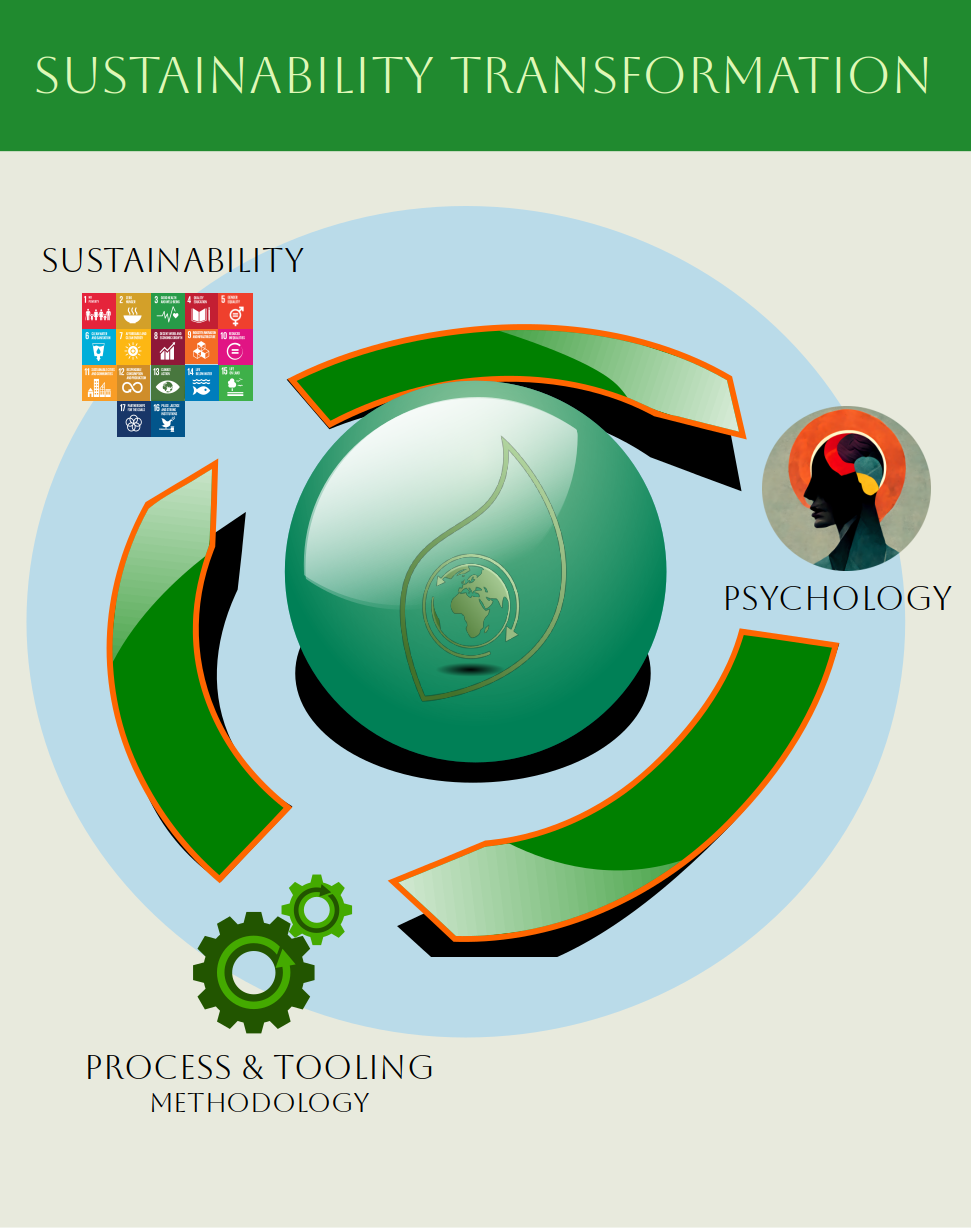
These are not new considerations - all transformations corporations go through deal with the same issues. A transformation is associated with change which could lead to fear and uncertainty, from a psychological stance. This must be dealt with using a transparent methodology based on already-known tools and processes.
Sustainability engineering is the result of 25 years of working in an industry with complex systems that require recognizing patterns in various areas. This made it quite a natural step to start looking at all aspects of the world as systems - including corporations and their processes. Therefore, finalizing the concept of sustainability engineering and applying it to leverage sustainability impact has been only a small step from founding sustainability as a consulting firm.
Sustainability engineering is not just a methodology; it's a paradigm shift. It's about applying the principles and methodologies of sustainable product development across all aspects of an organization. This integrated approach ensures that sustainability is not just a checkbox in a corporate report, but a fundamental part of the entire business process. Sustainability must be seen as a product to be delivered - which is something most businesses have a perfect idea of how to do.
Sustainability engineering is built on the foundation of three key pillars: economic, ecological, and social sustainability. These pillars are interlinked and must be in balance for any sustainability initiative to be successful.
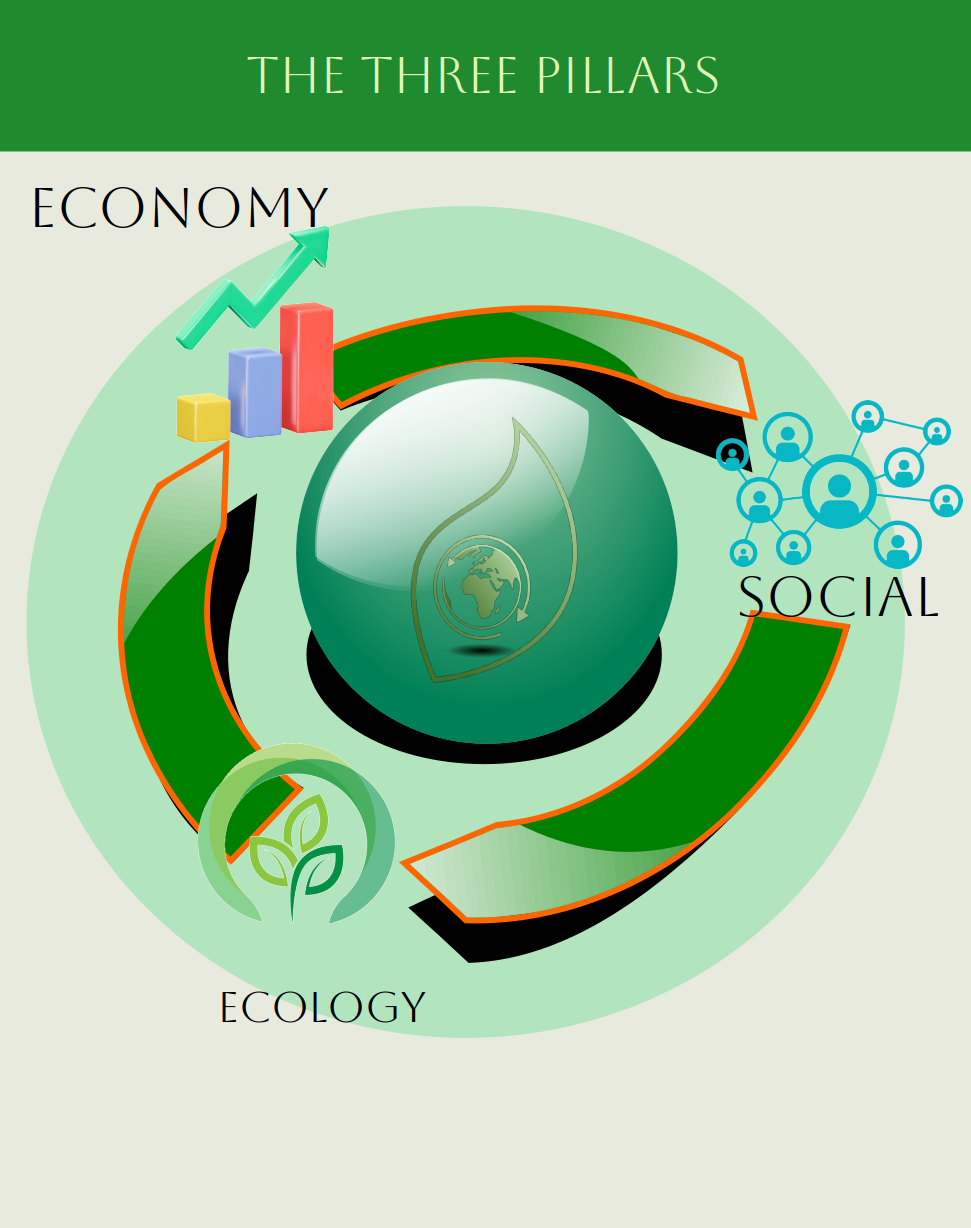
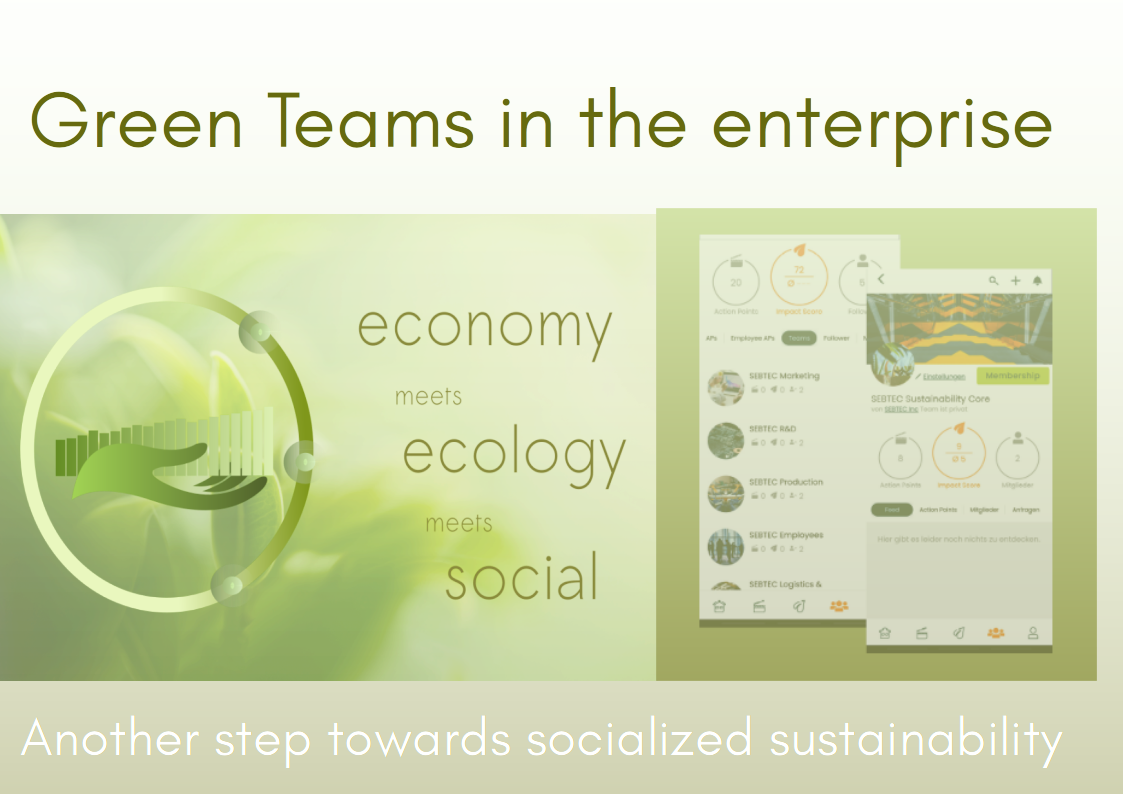
Economic governance, within the context of sustainability engineering, focuses on the strategic management of economic aspects related to sustainability initiatives. It involves integrating financial and economic considerations into sustainability practices to ensure long-term viability and effectiveness in achieving sustainable goals. Economic governance plays a crucial role in promoting sustainability by addressing economic issues and opportunities related to environmental and social responsibility.
Ecological governance in sustainability engineering aligns ecological considerations with economic and social objectives to foster a more sustainable and responsible approach to business and development. This approach ensures that organizations take comprehensive measures to minimize their impact on the environment while contributing to a more sustainable and ecologically balanced future.
Social governance, within the context of sustainability engineering, focuses on the ethical and social aspects of sustainable development and their integration into an organization's practices and strategies. It involves managing social responsibilities, relationships, and impacts, both internally and externally, to ensure a harmonious and sustainable coexistence between a business and society.
Stakeholders, including customers, employees, and the wider community, play a vital role in shaping a company's sustainability efforts. The development of sustainable objectives is driven by their needs and concerns; as well as by the interfaces and dependencies between them.
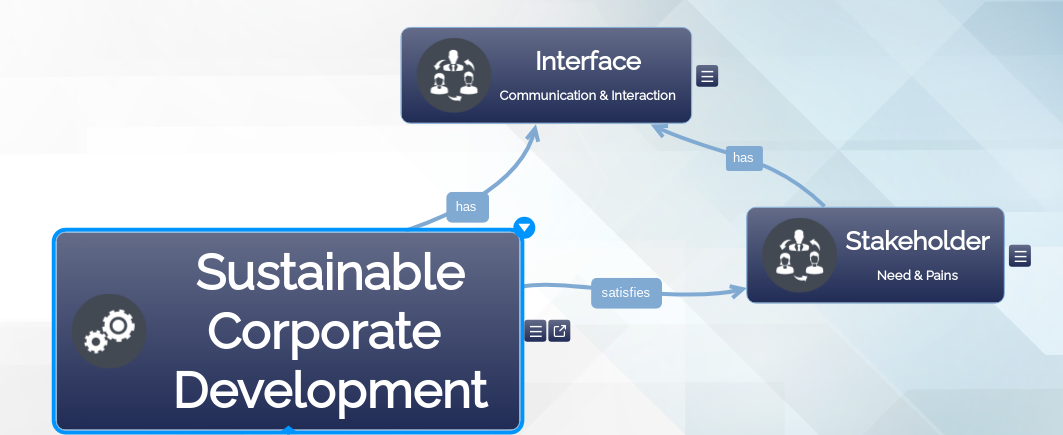
Further incorporating "socializing sustainability" into stakeholder engagement strategies creates a multiplier effect, extending the reach and impact of sustainability efforts. It fosters a culture of sustainability within and outside the organization and encourages a more profound commitment to sustainable practices. By engaging with stakeholders who actively promote and embody sustainability, organizations can accelerate their sustainability journey and contribute positively to environmental and social goals.
The core of sustainability engineering is objective management. This involves breaking down sustainability objectives into a structured and transparent process.
Objective management consists of five stages: elicitation, design, execution, validation, and deployment. These stages ensure that objectives are well-defined, thoroughly analysed, effectively implemented, rigorously validated, and finally rolled out into action.
Sustainability engineering is a powerful enabler for achieving sustainability objectives. By incorporating the principles of this methodology, companies can efficiently implement sustainability practices and align with the UN's Sustainable Development Goals.
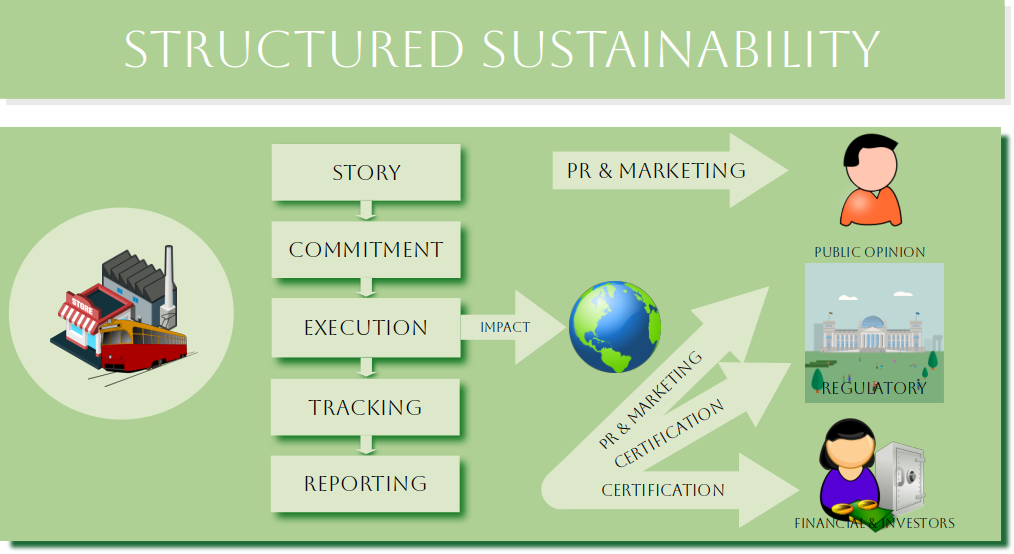
Applying the above-mentioned objective management steps leads to ecological governance. We come to the same stages by looking at a chain of activities starting from stories & commitments, planning and design of the solution, execution, verification, and publication/rollout.
Sustainability engineering offers a unique advantage - it's highly adaptable and can be easily integrated into existing corporate tool chains. This ability to seamlessly connect with established systems and practices is one of its defining features.
By integrating sustainability engineering into your current tool chains, you're effectively leveraging their full potential. This methodology is designed to work in tandem with your existing corporate infrastructure.
This integration offers several compelling benefits. It helps reduce costs and enhances productivity. Teams can continue to use the tools they are comfortable with while adding the sustainability dimension. This makes for a smoother and more efficient workflow.
Sustainability engineering encourages a lean communication flow. Through integration with established tool chains, communication is streamlined, ensuring all stakeholders have access to the same data, leading to a cohesive workflow.
In an era where sustainability is becoming a top priority for businesses and organizations, the adaptability of sustainability engineering is a game-changer. By integrating seamlessly with existing corporate tools, this methodology ensures that the transition to more sustainable practices is both cost-effective and efficient. The result? A more sustainable and prosperous future for all.
illuminem Voices is a democratic space presenting the thoughts and opinions of leading Sustainability & Energy writers, their opinions do not necessarily represent those of illuminem.
Aaron Bruckbauer

Pollution · Greenwashing
Glen Jordan

Sustainable Lifestyle · Sustainable Living
Gokul Shekar

Corporate Sustainability · Sustainable Business
Mirage News

Corporate Sustainability · Biodiversity
Politico

Corporate Sustainability · Public Governance
Responsible Investor

Carbon · Corporate Sustainability